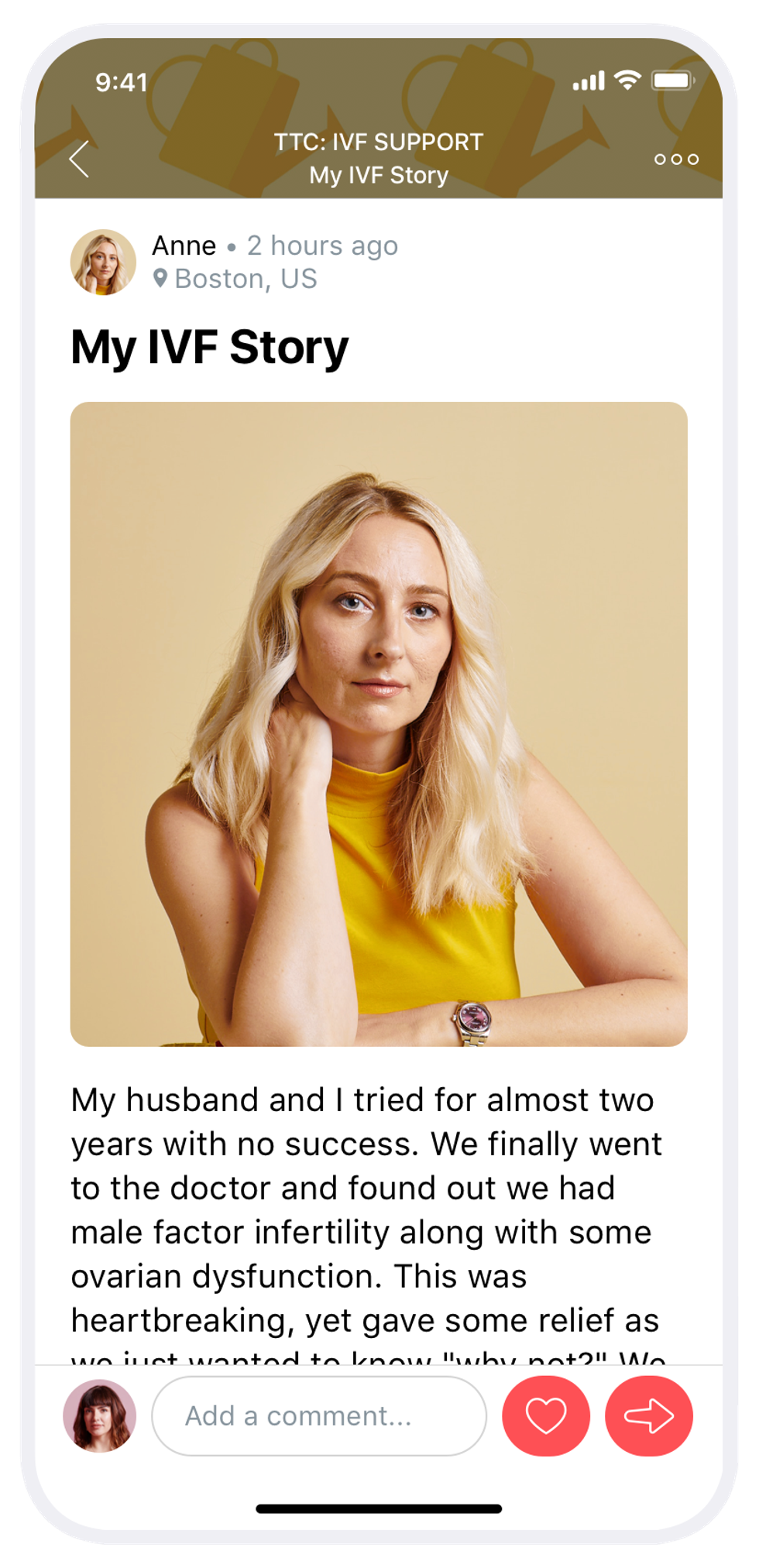New Platform, Trying to Conceive, offers community and insight
Peanut App’s Latest Release Gears Towards Women Struggling With Infertility and Infant Loss

Raising children can be tough, especially if you've never done it before. Friends and family can be a great support system but it's nice to be able to hang out with other moms who share your interests and parenting style. This was the motivation Peanut, the social networking app designed to help moms find their tribe. Since it's launch, Peanut has become a premier destination for moms and moms-to-be to foster relationships through motherhood.
Today, the app deemed "Tinder for Moms" unveils a new platform, Trying to Conceive (TTC), a space for women on their journey to conceive. Peanut TTC is the first digital community that offers women on assisted fertility journeys and considering alternatives to pregnancy, a community of support through shared experience. The app also offers a space for women who have experienced miscarriage or infant loss.
The CDC reports that 1 in 8 couples in the U.S. experience infertility, and although advances in medicine and technology can increase the chances of conception, they don't address the overlooked emotional and mental toll that comes with the process — anxiety, loneliness, and depression. These issues fueled the Founder and CEO of Peanut, Michelle Kennedy, to develop Peanut TTC.
Brit + Co: How have you seen the conversation and connection surrounding motherhood change since the birth of the Peanut app?
Michelle Kennedy: With any relationship, including those we have with apps and tech, there is always an initial trust-building period. For moms, and new moms especially, this is crucial. They're asking questions about their children, nothing could be more precious. Beyond that, there is a vulnerability as a new mom that I can't quite put into words. It's an incredibly scary and lonely moment in your life. And when we don't know or understand something, we tend to hide. However, as Peanut has grown, we've seen the opposite than one might expect when it comes to connection and vulnerability. The bigger the community, the more intimate conversations amongst women have become. Women have full trust in each other, and in the app — because of how we build it, and because of how we protect our community. They share everything. They help each other in times of need. They laugh together. They meet up and they build lifelong relationships. At Peanut we have been able to scale with intimacy, and that is a major accomplishment of the women on the app.
B + C: Do you use the app yourself?
MK: I can say with full confidence, that I have used Peanut every day since its inception — save for the birth of my children. And even then, there's a fair chance I was in-app for a moment or two. I love watching our community grow. I am a part of that community. I laugh and cry alongside these women. Sometimes I check in during a 4 am feed, and just reading comments and threads from other women gives me a sense of calm. I built something that I would use. It only makes sense that I use it.
B+C: Why did you decide to expand with TTC?
MK: Very much like Peanut, Peanut TTC was born from a real need. We know moms need support and comfort and community. They want to be able to chat in trusted environments. Women going through fertility journeys need that equally, if not more. For both the most patent reasons and for the emotional battles of TTC that are kept in the shadows or shrouded by the science of it all. Primarily, it's just not easy to find another woman who is on a TTC journey -- it's not as obvious. There are no visual signals for a woman who has experienced loss or who is trying for a baby. A mother may even have a child by her side, and yet is struggling to conceive baby #2.
B + C: What problems do you see or experience associated with motherhood? What stigmas still need to be broken?
MK: Oh, where does one start? As I am a working mother, I can speak on that specifically. There is this idea that motherhood distracts you, makes you less employable — we see this all the time. Women are replaced during maternity leave. They are scared to reveal pregnancies to employers. Job security is a major concern. There are so many backward notions about this, but these fears are also built on the notion that raising children is solely a woman's job. No one ever asks a new dad how he's going to work and manage a newborn. No one ever asks a father-to-be if he's going to come back to work after the baby is born. Why? We all know why. And it's a detriment to modern motherhood.
B+C: What are your hopes surrounding women and the conversation of motherhood in the future? What does that community look like?
MK: This digital community is the signal — the lighthouse, if you will, for women who feel alone. It's the heart behind the science. All are invited into this compassionate and community-driven space. These women comfort each other. Share. And ultimately, no matter where their journey takes them, they take care of each other. Additionally, the more we speak about our experiences, the less isolating they become. Peanut TCC shines a light on what is often a silent struggle.



















